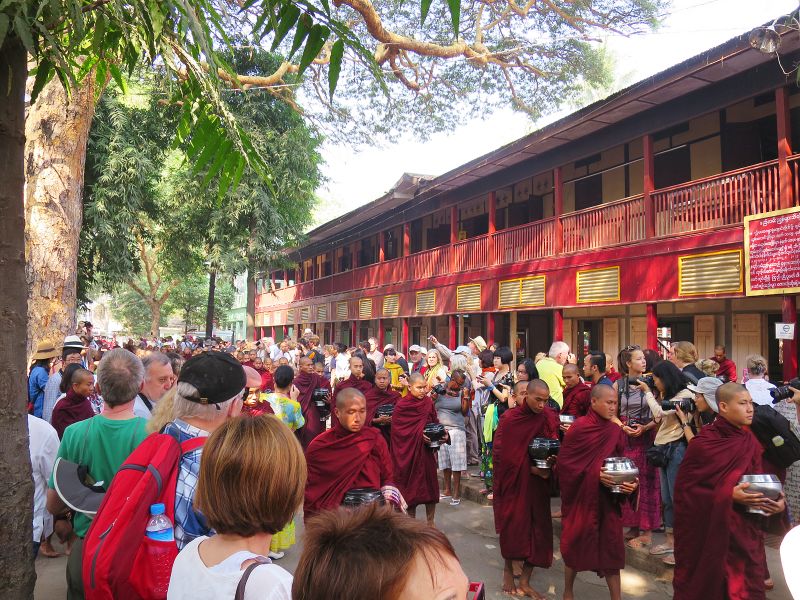The Dining Rituals of Monks in Myanmar
Myanmar’s cultural richness is beautifully represented by the rituals surrounding its Buddhist monks, especially during their unique lunchtime customs. At the Mahagandhayon Monastic Institution in Amarapura, tourists are drawn to witness an extraordinary sight each day.
Timing and Rituals
Every day at approximately 10 a.m., visitors gather along the roadsides to witness the monks as they line up for their meal. This event provides a rare glimpse into the disciplined lives of the monks, who partake in their last meal of the day before noon. It is important to note that these monks observe strict eating rules, as they are not permitted to consume food again until breakfast the following day.

Tourist Behavior and Monk Perspectives
While observing these rituals, visitor behavior varies significantly. Some tourists may exhibit respect, while others may not adhere to the requested etiquette. A monk named Ashin Pannadhaya stated, “Some tourists are very nice, some very bad. They take photos crazily.” This sentiment highlights the delicate balance between respecting the sacred nature of the moment and the enthusiasm of those wishing to capture it.

The Monastic Environment
Outside of the bustling lunch hour, the monastery offers a tranquil escape. The peaceful afternoon atmosphere contrasts sharply with the earlier tourist activity, allowing for a serene reflection on the monks’ disciplined lifestyle. Moreover, the monastery significantly relies on the generous donations from locals, which provide the necessary sustenance for the monks.

Respecting Cultural Traditions
For visitors seeking to understand the cultural significance of these rituals, showing respect is paramount. The monks, including Ashin Pannadhaya and Ashin Zavana, hope for consideration during their lunchtime—a time of tranquility amidst their daily commitments.

Conclusion
While the interaction between tourists and monks can sometimes be challenging, the opportunity to witness this profound cultural ritual remains an experience that fosters appreciation for the traditions of Myanmar. Consequently, as travelers explore this beautiful country, they can contribute positively by recognizing and respecting its rich cultural heritage.





